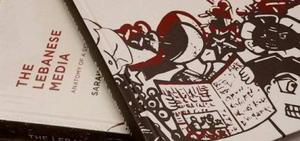Media in Lebanon – A System of Crisis for a Nation in Crisis?

Lebanon is divided on many levels and therefore in constant crisis mode. This once again became evident in early November when Prime Minister Saad Hariri suddenly resigned for ambiguous reasons. Fears of civil strife have returned to Lebanon.
The Lebanese media are often accused of further dividing the society. The Lebanese media system, famous for its wide spectrum of opinions and political ideologies is a unique case: Although the audience is extremely small, there is a huge number of outlets: Eight TV stations, even more radio stations and an unknown number of newspapers – all combating for only four Million Lebanese inhabitants.
Since there are too many outlets for too few people, newspapers and TV stations can’t survive independently. The solution: political donors who use the outlets as their mouthpieces rendering the media system not only very pluralistic, but also highly politicized.
This “System of Perpetual Crisis” is the subject of Dr. Sarah el-Richani’s book “The Lebanese Media – Anatomy of a System in Perpetual Crisis”. (Palgrave Macmillan 2016).
We are happy to discuss with her the Lebanese Media system and its impact on society.
Among others, we will discuss the following questions:
- What are the effects on society when the media depends on politicians and their agendas, and how does it impact politics?
- What is the effect on journalists and the freedom of press in such a system?
- What are alternative media sources for the Lebanese public – which role do bloggers and social media activists play?
Bodo Straub (Alsharq e.V.) whose Master Thesis dealt with Lebanese media will moderate the event (read here a summary of his thesis in German).
In order to have a rough idea how many people will show up, please sign up for the event by sending an e-mail to veranstaltung@alsharq.de.
Dr. Phil. Sarah El-Richani is visiting fellow at the Centre for Lebanese Studies, St. Antony’s College, University of Oxford and from January 2018, Assistant Professor at the American University in Cairo. She completed her doctoral studies in 2015 in the field of International Communication and Comparative Media Studies at the University of Erfurt, Germany and courtesy of a DAAD Scholarship.
Sarah obtained her MA from the University of Westminster courtesy of the Quintin Hogg Scholarship and her BA from the American University of Beirut, Lebanon. Her monograph, Lebanon: anatomy of a media system in perpetual crisis has been published by Palgrave Macmillan in 2016.
Sarah is on Twitter (@srichani) where she tweets on Middle-Eastern politics, media and most else.